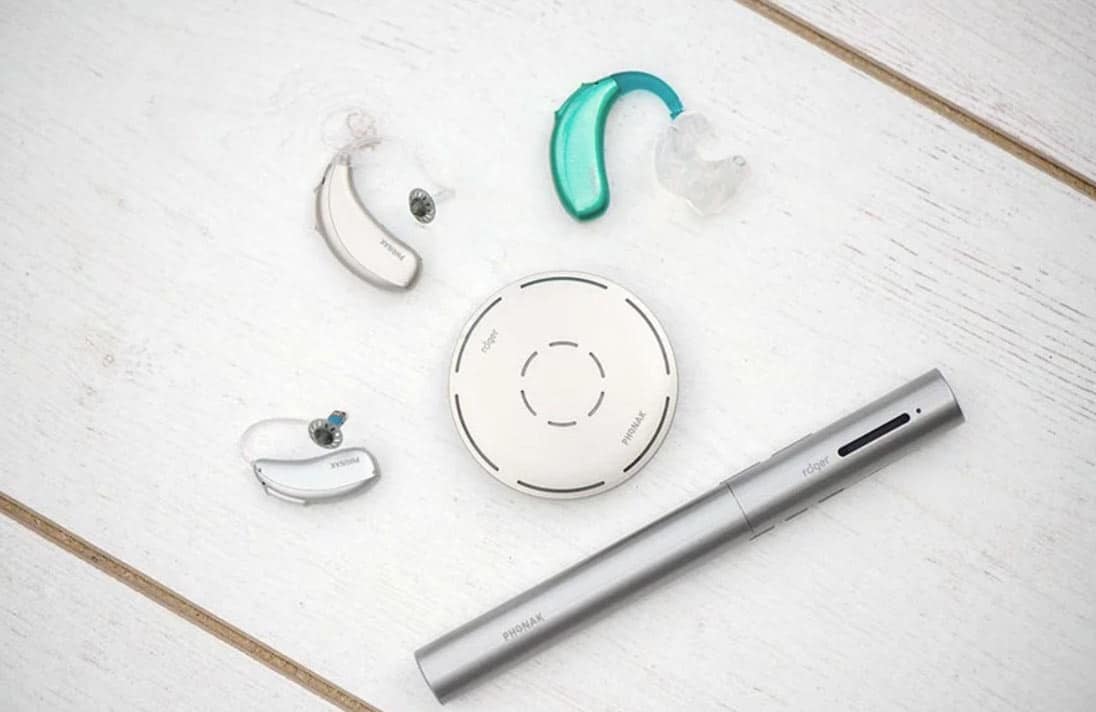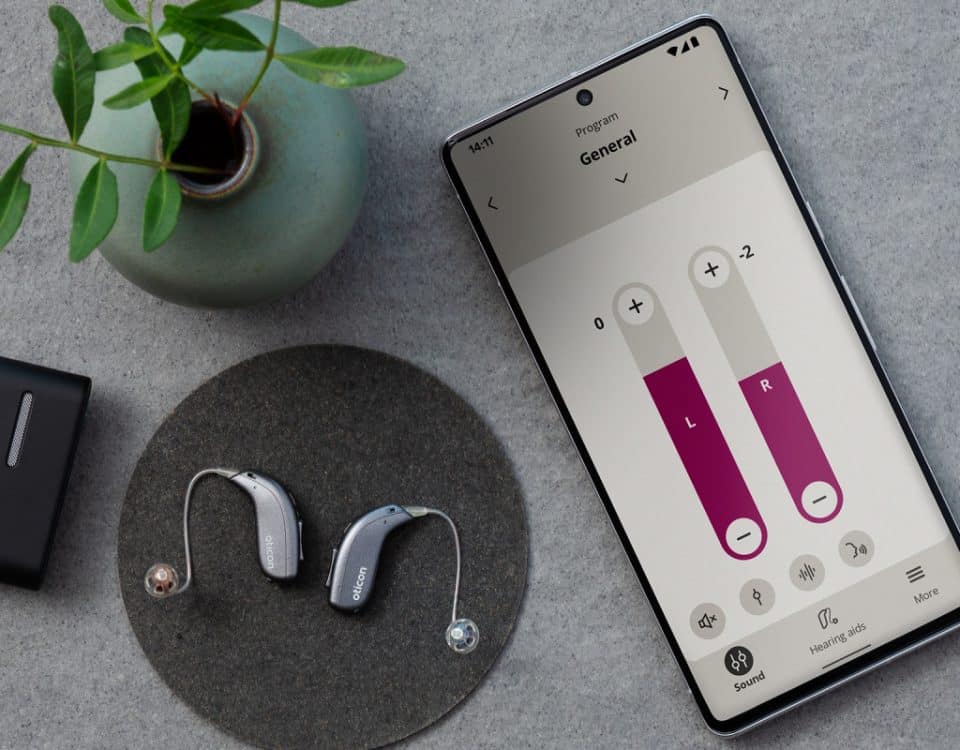
Initial review of Phonak Marvel 2.0 hearing aids
November 7, 2019
New Hearing Aid Technology on the Horizon
February 2, 2020This weekend I attended my bi annual outing to see the mighty Shed Seven @ Glasgow’s 02 Academy. Shed Seven are one of the best bands to come out of the 90’s and boy do they play loud gigs. I decided to go without hearing protection because I thought I don’t go to gigs often but alas the next day as I expected my tinnitus was raging.
I developed tinnitus a few years back. Mines I believe comes from my Military background, my love of live music and on leaving the military catching up on all those raves I missed, and boy did I play catch up!
Here is some information on Tinnitus and some ways I manage my tinnitus – (Please note this is how I manage my tinnitus and in no way can I guarantee this will work for you)
Tinnitus what is it?
Tinnitus is most commonly perceived as ringing buzzing or whooshing in your ears. It can have varying effects from individual to individual.
Around 13 – 15% of the UK population have tinnitus. 90% of those with tinnitus manage with it ok & 10% find that the tinnitus interferes with their life in some way and struggle to manage it.
Around 90% of people who have tinnitus also have an associated hearing loss with common hearing loss coming from age or those that work in noise.
Symptoms and side effects
- You may find it difficult to concentrate. The noise distracts you and you struggle to stay focussed
- Lack of sleep. This is a common area tinnitus can distract you from relaxing and getting to sleep.
- Struggle with hearing – the noise or ringing may make you feel you can’t hear as well. Remember that 90% of people with tinnitus have associated hearing loss.
- Stress and anxiety – the ringing in your ear can cause you to get stressed. The stress can then make your ringing seem worse and you may get anxious. It can be a vicious circle that you feel sometimes you may not escape from
- Depression and fatigue – If you feel like you can’t escape your tinnitus you can become depressed. Your tinnitus because it affects your sleep and your mood can also leave you feeling tired and run down.
So What causes Tinnitus?
Although sometimes it difficult to say for certain what causes tinnitus. Tinnitus in most cases is a symptom of something else. The misunderstanding here and lack of support can have great effects on people.
Some people when they get tinnitus get very worried and believe they have something very bad wrong with them. This is very rarely the case and your tinnitus is very likely the symptom of something which is non-threatening.
- Hearing loss – If you have hearing loss your natural hearing system may not be functioning as well as it should. This may give the perception of tinnitus.
- Noise exposure- We’ve all heard our favourite singer or musician talk about ringing in their ears. There is no doubt if you expose yourself to noise from prolonged periods and don’t protect your ears not only will you get hearing loss you will most likely get tinnitus.
- Impacted ear wax – Impacted ear wax can be the cause of tinnitus or if you have tinnitus it can certainly add to the problem by making it louder.
- Middle ear bone problems – If the bones that transport the sound across your middle ear have an issue such as otosclerosis then you can have tinnitus as a side effect.
- Oto toxic medication – Some medications can cause or exacerbate tinnitus – Always speak to your GP if you think this could be the case.
- Head trauma – If you have been in an accident that involved head trauma you may develop chronic tinnitus.
- Temporomandibular Joint Disorder – This can cause tinnitus and if you suffer from this or suspect it speak to your dentist.
So What can I do to help my tinnitus?
There are lots of things you can do to help your tinnitus. We hear so often in our clinic ‘I was told there is nothing you can do for tinnitus’. We feel this is not the right advice to give. Although your tinnitus may be with you for the rest of your life there is plenty you can do for your tinnitus lets look at some below –
- Get a hearing test – 90% of people with tinnitus have associated hearing loss. If you get a hearing test and audiologist will be able to tell you if you have hearing loss and if you would benefit from wearing hearing aids. Hearing aids have been shown to greatly reduce the perception of tinnitus in people with hearing loss particularly if its noise induced.
- Get your ears checked for wax – Could be that simple
- Protect your ears from noise – If you work in noise think about getting some custom ear moulds to protect your hearing ACS are a company we deal with and they do a fantastic range of custom moulds that will protect your hearing but will still allow you to hear what’s going on from the outside world.
- Relax – Tinnitus can be exacerbated because of stress and anxiety. If you are stressed and anxious when you go to bed at night you will probably notice your tinnitus. Your tinnitus will probably add to that stress. So many people blame their tinnitus for their stress when in so many cases it’s the stress that’s causing the tinnitus to seam worse Manage stress and you can manage tinnitus better.
- Don’t self-diagnose on the internet!! – This is a regular problem we find at our clinic. We’ve all done it. Dr Google! You can read 100 articles 99 tell you a positive story and 1 tells you your worst fear which one do you believe…… Speak to a pro or visit several people who have better knowledge.
- Think about therapy – A great help for people with tinnitus is to talk to someone who understands their problem. A good tinnitus therapist will be able to help you work towards managing your tinnitus and give you exercises that will not only help your tinnitus but help manage stress and anxiety.
Some exercises to help
We know for a lot of people they are going to have tinnitus for the rest of their life’s. I’m one of those people. The first thing we need to do is find a way to accept that. We also need to understand it’s not life threatening.
Our main goal should be to recategorize our tinnitus from being a fearful or dreadful experience to habituating to it and not letting it bother you. That’s the goal not getting rid of it but learning to live with it and habituate to it.
I’ve personally come to be thankful of my tinnitus. When mines is screaming at me I use it as an awareness toll. Why is it screaming at me? Nearly every time I can link to to a very stressful day that I have carried about with me and let it affect my stress levels.
I personally use stress reduction exercises with sound therapy to help me get back on track.
Here are some exercises I use to help (suggest downloading the ‘Widex Zen App’ from the APP or play store)
Sounds for therapy
Play a sound such as white, or pink noise or some thunder or the ocean from the Widex Zen app. Play it just below the sound of your tinnitus. You want to hear the soothing noise from the app but it’s important you hear the tinnitus as well. Now actively listen to both the soothing noise and your tinnitus. This can help you relax and re-categorise your tinnitus. It will help you to accept and not run from your tinnitus.
Masking exercise
This time what we want to do is play some soothing sounds from the Widex Zen app so we can’t hear our tinnitus. Be careful not to go to loud here or we could aggravate our tinnitus. We want to play the soothing sounds for 2 mins relax and be free from our tinnitus. After 2 mins turn the sounds off and now fully listen to your tinnitus. We know that in 2 mins we will get a break from the tinnitus, but we are also sitting working with our tinnitus. Again, this can help to re-categorise your tinnitus from threat to acceptance.
Relaxation exercises
Without doubt people who have tinnitus who can manage stress well tend to manage tinnitus well. If stress anxiety and tinnitus are things you identify with then you need to get some stress relief practice into your daily routine. It’s essential you do these exercises regularly and when you are not stressed!! If you do them when you are not stressed, they will work when you are stressed!
1. Deep diaphragmic breathing – Its now common knowledge that meditation and conscious breathing are good for our mental health and stress levels. Meditation or mindfulness as a lot of people may know it as does not aim to cure you of tinnitus, but it aims to help you accept it and find it less of a threat.
For this exercise what we want to do is take a deep breath in. Fill up our belly, fill up our chest and feel the air go into your head. We want to count to 5 as we do this. Once we are full we want to let all the air out but this time on the count of 10. So breath in for 5 and out for 10. On the out breath feel all that tension release from your body.
If you do this for 5 mins you will automatically notice a difference not just to your tinnitus but your overall mental wellbeing. This exercise is used by free divers. These are the guys that dive 200m into the depths of the see with no oxygen. This exercise is important to them because it reduces their anxiety stress and heart rate allowing them to stay submerged for longer.
2. Muscle tension exercise – This is a great exercise that works well before breathing. You start by tensing tour left foot as tight as you can for 5 seconds then let it go. You do the same for your right foot let it go. You then move onto your left calf let it go. Right calf tense hard for 5 seconds then let it go. So on and so forth until you have isolated and tensed every muscle group in the body You finish with a great big head squeeze. Now feel the tension free from your body. Now do the breathing exercise.
This is just some of the positive things you can do to help your tinnitus but by no means is that everything. If your tinnitus is really bothering you are you are just curious about your tinnitus then seek out someone who will listen to you. Therapy is a great way to help you get back into balance and get control of your tinnitus.
Practicing the exercises and talking about them and your tinnitus with someone who really empathises with you will go a long way to helping you help yourself.
For more information please don’t hesitate to contact us @ Lanarkshire Hearing Centre
Steven Ross (MSHAA, RHAD)
Director
58 Cadzow Street,
Hamilton,
ML3 6DS
t: 01698 283549
m: 07340 746950
e: info@lanarkshirehearingcentre.co.uk




